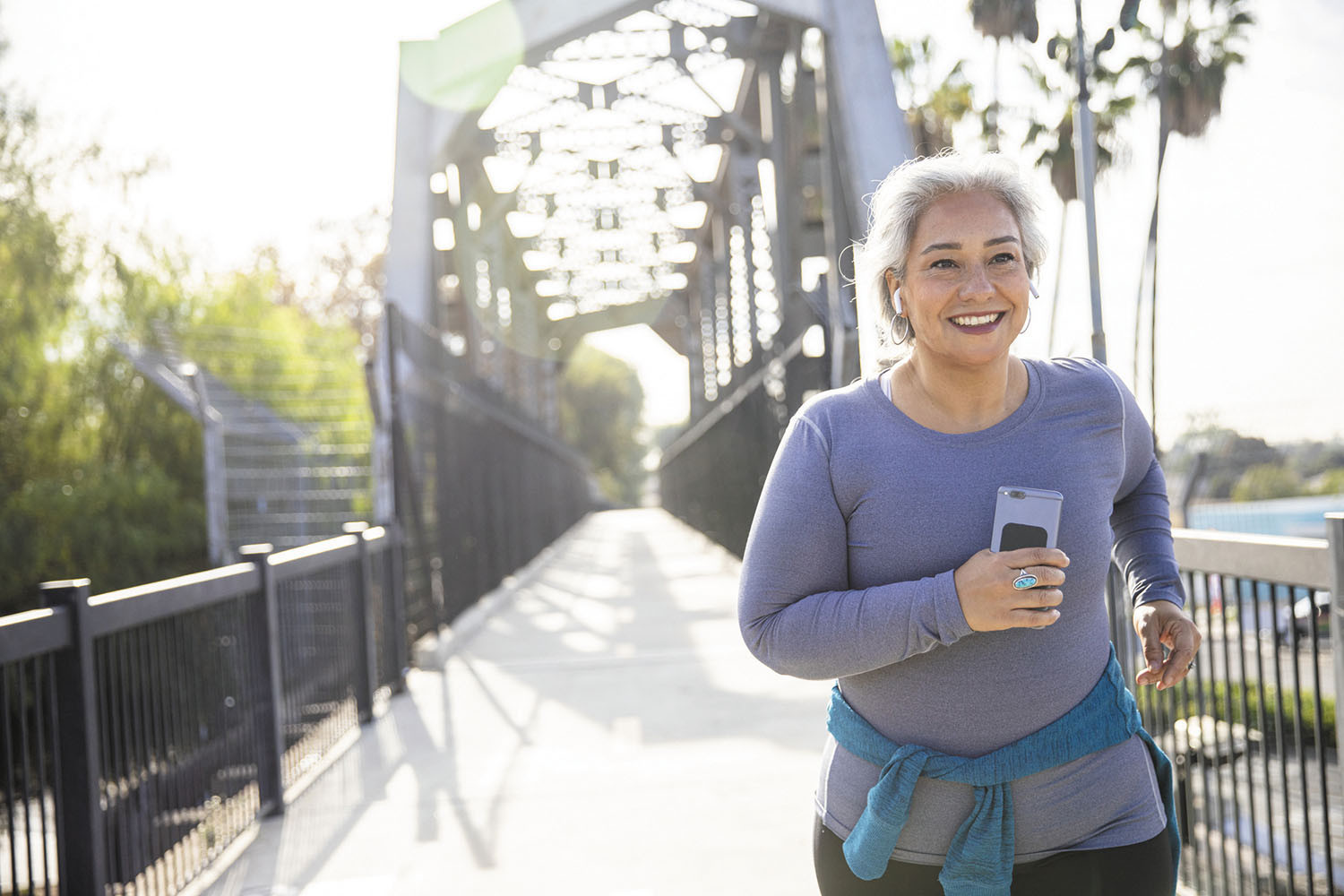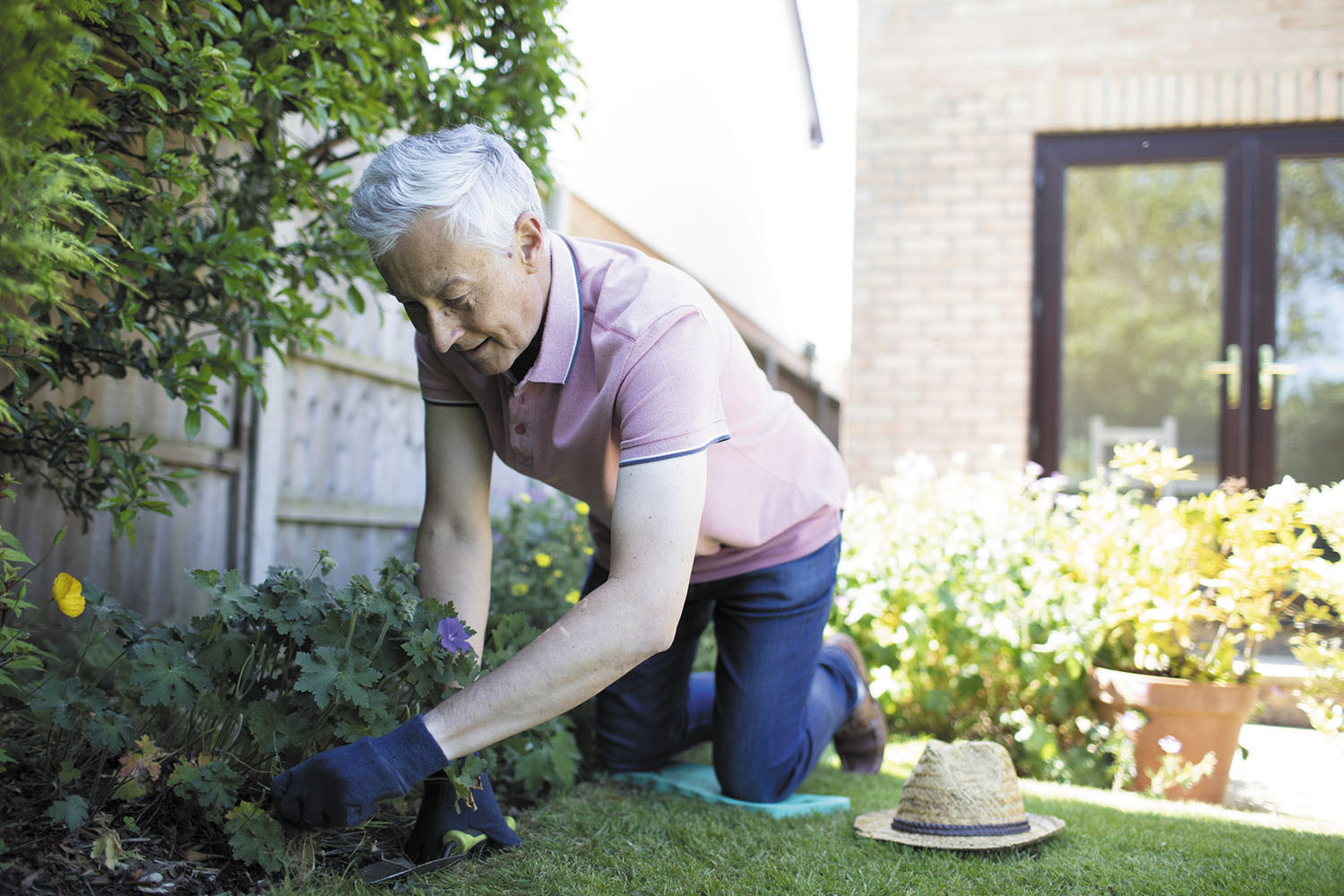
Driving with arthritis pain: Stay comfortable — and safe — behind the wheel

Daily cup of coffee may prevent afib recurrence

Gene-editing therapy lowers harmful blood fats in early study

What is EMDR therapy, and who can it help?

GLP-1 drugs versus bariatric surgery for treating obesity

Two dumbbells, three exercises, and 10 minutes

Easing the emotional burden of IBS

Modify your push-ups to meet your fitness level

What is long QT syndrome?

Stroke survivors may benefit from very low LDL levels
Physical Activity Archive
Articles
Overcoming heart health obstacles
Men often confront obstacles that keep them from managing heart disease or lowering their risk for it. Harvard cardiologists share the advice they give patients who face challenges in the areas of weight loss, medication management, exercise, and diet. These include thinking about their future health goals, monitoring blood pressure, scheduling workouts, joining group weight-loss groups, and learning portion control for meals.
Staying in shape: A case of "use it or lose it"
Fitness levels rapidly diminish when people abruptly stop workouts. Cardiovascular fitness declines within weeks, while muscle strength deteriorates after about two months. The longer a person hasn't exercised, the longer it will take to regain prior fitness levels. To restart exercise, people should seek their doctor's approval, especially if they have chronic conditions; build up exercise levels slowly; do the same types of exercises they once enjoyed; find an exercise partner; and track progress with wearable devices or by keeping a paper log.
Do these activities hurt your knees?
Certain activities like running, stair climbing, or kneeling may lead to knee pain. But evidence suggests that regular activity or exercise is unlikely to cause actual knee damage. Learn how to keep active and avoid knee pain.
How does exercise affect blood pressure?
A 2023 analysis of nearly 300 randomized trials found that several types of exercise were effective in lowering resting blood pressure. Exercise types included aerobic exercise, high-intensity interval training, dynamic resistance training, isometric exercise training, and combined training (aerobic exercise plus one of the other types of exercise). People who are over age 50 and have not been exercising much should check with a doctor before beginning a regular exercise program, since some types of exercise may not be right for them.
Exercise may counteract inherited risk for diabetes
Getting regular exercise can help fend off diabetes, even in people with a genetic propensity for the disease, according to a 2023 study.
Weekly aerobic exercise may help reduce flu and pneumonia deaths
A 2023 study found that people who met guidelines for engaged weekly aerobic activity had a lower risk of dying from pneumonia or influenza than those who did no activity.
Try this: All aboard for paddleboarding
Paddleboarding is a popular water sport in which people stand or kneel on a "surfboard" and use a long paddle. It's a great stress buster, and it can help improve balance and strengthen key muscles, like those in the core, back, arms, and shoulders.
Rising up from a fall
Older adults need to safely be able to sit and rise from the ground whether kneeling in the garden, looking for something under the bed, or playing on the floor with the grandkids. This movement is also helpful when getting up after a fall. Three exercises that can help older adults with daily up-and-down mobility are kneel-to-stand, crawling, and sit-to-stand.
Physical activity may lower Parkinson's risk in women
A 2023 study suggests regular physical activity, including walking, climbing stairs, gardening, and cleaning, may help prevent or delay the onset of Parkinson's disease in women.
When fatigue leaves you drained, depleted, and dumbfounded
Fatigue affects up to three-quarters of older adults with chronic conditions. Some causes are obvious, while others are less well recognized. They include sleep disorders, anemia, poor diet, thyroid problems, mood disorders, and medication use. People with prolonged, unexplained fatigue should see a doctor, who will perform a physical exam, ask about medical history, and in some cases perform blood or other tests. People can boost energy levels by exercising more, optimizing diet, using caffeine strategically, and limiting alcohol consumption.

Driving with arthritis pain: Stay comfortable — and safe — behind the wheel

Daily cup of coffee may prevent afib recurrence

Gene-editing therapy lowers harmful blood fats in early study

What is EMDR therapy, and who can it help?

GLP-1 drugs versus bariatric surgery for treating obesity

Two dumbbells, three exercises, and 10 minutes

Easing the emotional burden of IBS

Modify your push-ups to meet your fitness level

What is long QT syndrome?

Stroke survivors may benefit from very low LDL levels
Free Healthbeat Signup
Get the latest in health news delivered to your inbox!
Sign Up











